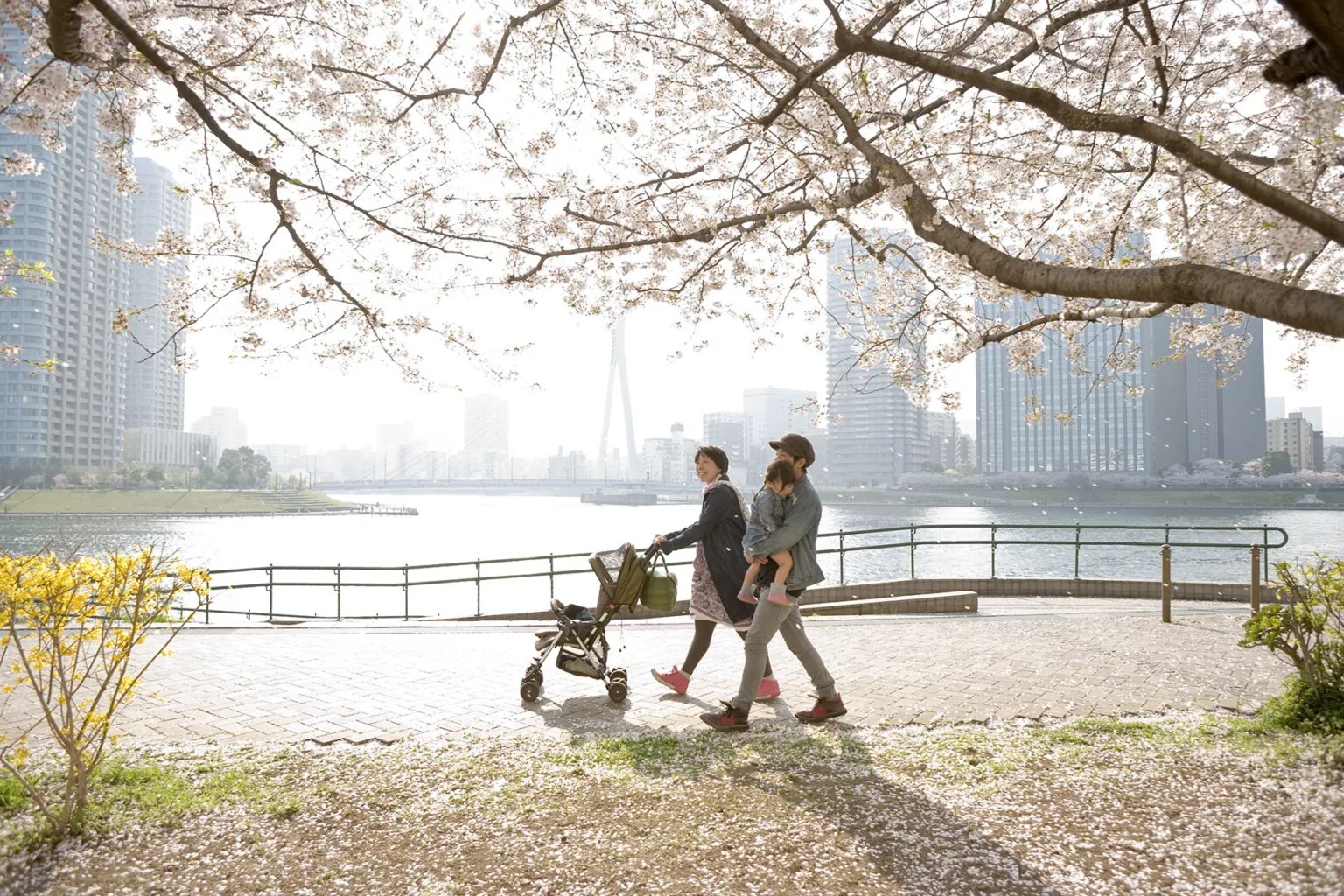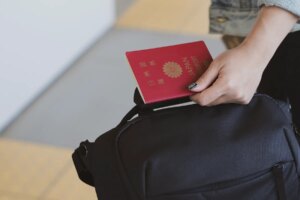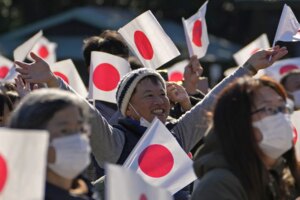If you live in Japan, whether on a work visa, with permanent residency, or as a naturalized citizen, you may want your family to join you indefinitely. If they relocate to live with you, they would need to apply for a family or spouse visa to comply with Japanese immigration policies. This will also give them the right to attend school, study, or work.
Discover how to apply for a family or spouse visa in Japan by exploring the following topics:
- Family and spouse visas in Japan
- Who can move to Japan to join their family?
- How to apply for a spouse or family visa
- Costs of family visas
- Japanese family visa types
- Short-term visits to family members in Japan
- Visiting family members in Japan who only have a temporary visa
- Joining refugees or asylum seekers in Japan on family visas
- When family members arrive on a family or spouse visa in Japan
- What do you do following the death or divorce of a family member?
- Complaints and appeals
- Useful resources
MyVisaJapan
Are you or your partner moving to Japan on a spouse visa? MyVisaJapan offers a cutting-edge AI-powered platform that streamlines the application. You can renew your spouse visa, change to that visa type, or apply for a Certificate of Eligibility with their specialized application preparation service.
Family and spouse visas in Japan
In Japan, the family visa category allows foreign nationals to join their loved ones already living in the country. According to the Ministry of Foreign Affairs (MOFA – 外務省, Japan issued 90,306 visas in 2021, which was lower than usual due to the country’s COVID-19 restrictions. It does not specify the number of family visas. Immigrants come from across the world, including Vietnam, China, the US, the Philippines, South Korea, Russia, Brazil, Indonesia, the UK, and India.
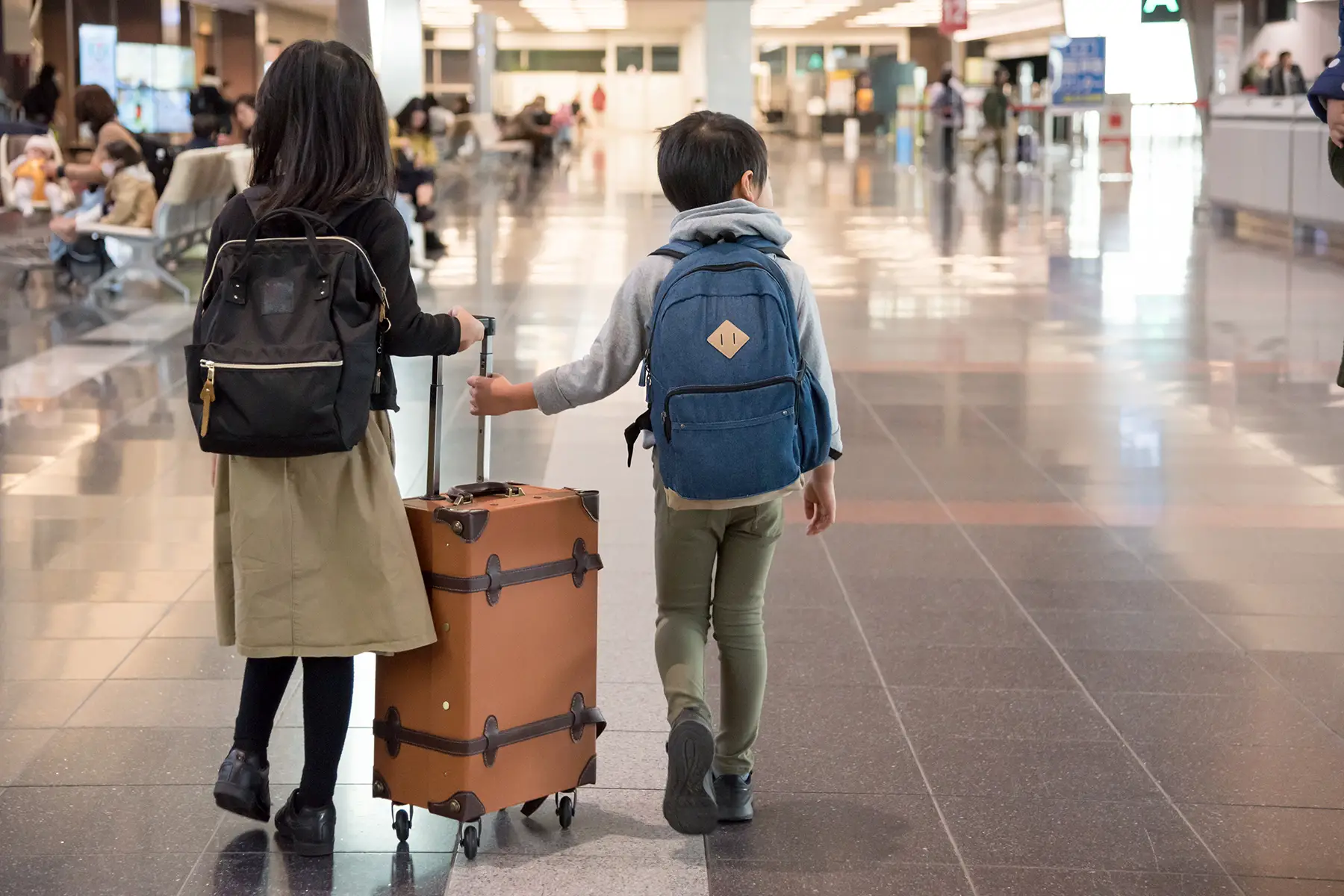
MOFA is the government department that manages and issues family visas in Japan and organizes these into three categories:
- Dependent family of a work visa holder
- Spouse or child of a Japanese national
- Spouse of a permanent resident
Compared to other countries, strict immigration policies can make applying for a family or spouse visa in Japan challenging. The difficulty level depends on various factors, including the applicant’s relationship with the sponsor, their financial status, or the sponsor’s ability to support the applicant.
Which documents do you need to supply?
To successfully apply for a Japanese family visa, applicants must also provide a range of documents, such as:
- Marriage or birth certificates (or proof of legal adoption)
- Proof of financial stability (e.g., bank accounts or employment contracts)
- Proof of permanent residence in Japan (e.g., residence card or passport)
The visa authority can take several months to process applications, so it is best to start the process as soon as you decide to join the sponsor for longer than 90 days.
Who can move to Japan to join their family?
Who doesn’t require a family or a spouse visa?
Individuals not requiring family visas in Japan include those already holding a different type of visa. For example, a work or student visa would allow them to reside independently in Japan even if they join their family living there. Additionally, citizens of countries with a visa waiver agreement (ビザ免除協定) can enter and stay in Japan – visa-free – for up to 90 days. However, this option does not permit long-term residence or employment.
Who needs a family or spouse visa?
Close family members of Japanese citizens or permanent residents are eligible to move to the country under the family visa category. Spouse visas in Japan cover husbands, wives, and civil partners, while children (by birth or adoption) can join the sponsor on dependent family visas. However, other dependent family members, such as parents or siblings, may also apply under specific circumstances.

All applicants must demonstrate a genuine relationship with their sponsoring family member and provide proof of financial stability by submitting supporting documents. Consequently, the Japanese government carefully evaluates each application to ensure that the applicant meets all requirements and that the family member residing in Japan can adequately support them.
How to apply for a spouse or family visa
The application process is the same for all types of family visas. Only the supporting documents may differ depending on the familial relationship. Generally, you need to follow these steps:
- First, the sponsor must request a Certificate of Eligibility (COE – 在留資格認定証明書) from the Ministry of Justice (MOJ – 法務省) to prove you both meet the visa requirements
- Next, the family member can apply via the Japanese embassy in their home country or with the regional bureau of the Immigration Services Agency of Japan (ISA – 出入国在留管理庁)
Also, remember to include the following documents with your application:
- Passport of applicant (country of origin)
- Residence, citizenship, or visa status of the sponsor living in Japan (e.g., Japanese passport or residence card)
- Proof of relationship status (e.g., marriage, birth, or adoption certificate)
- The COE
- Passport photo
- Application fee
You can streamline the Japanese spouse visa process with MyVisaJapan and complete the application in under 30 minutes.
Costs of family visas
Fees may vary – if you apply through a Japanese consulate outside the country – but expect to pay between ¥3,000 (single entry) and ¥6,000 (multiple entry).
Japanese family visa types
Below are the categories of family or spouse visas in Japan:
- Spouses of Japanese nationals: Through marriage or civil union – allows a spouse to live and work in Japan
- Spouses of permanent residents: Through marriage or civil union – allows a spouse to live and work in Japan
- Children of Japanese nationals/permanent residents: Dependent children (biological and adopted) can apply to live and attend school in Japan
- Spouses of long-term residents: Spouses/partners can live in Japan but may have limited employment options. Long-term residents include work visa holders or persons with Japanese ancestry, Indo-Chinese refugee settlers, or the spouse/children of Japanese nationals left behind in China.
- Other dependent family members: Parents or siblings of Japanese nationals/permanent residents can apply for a dependent visa if the sponsor can support them financially
Each type of family visa is valid for varied durations and affords the holder slightly different entitlements:
| Categories | Entitlements | Validity |
| Spouse/children of Japanese nationals | Residency, work, and study without any specific restrictions Access to public services, such as healthcare and education | One year but can be extended |
| Spouses/children of permanent residents | Residency, work, and study without any specific restrictions Access to public services, such as healthcare and education | Six months to five years |
| Spouses of long-term residents | Residency, but may have restrictions on work, and study options Access to public services, such as healthcare and education | Six months to five years |
| Other dependent family members | Residency status while living with their sponsoring family member Allowed to enroll in the education system and language classes Only limited employment options | Up to five years |
Short-term visits to family members in Japan
A short-term stay visa is usually appropriate for non-compensatory visits (under three months/90 days) to family members in Japan. This visa does not allow you to work or study in the country. You can apply at your local Japanese embassy or consulate before traveling to Japan.
Remember to take along the required documents with you, including:
- Completed application form
- Passport (applicant and sponsor)
- Passport photo
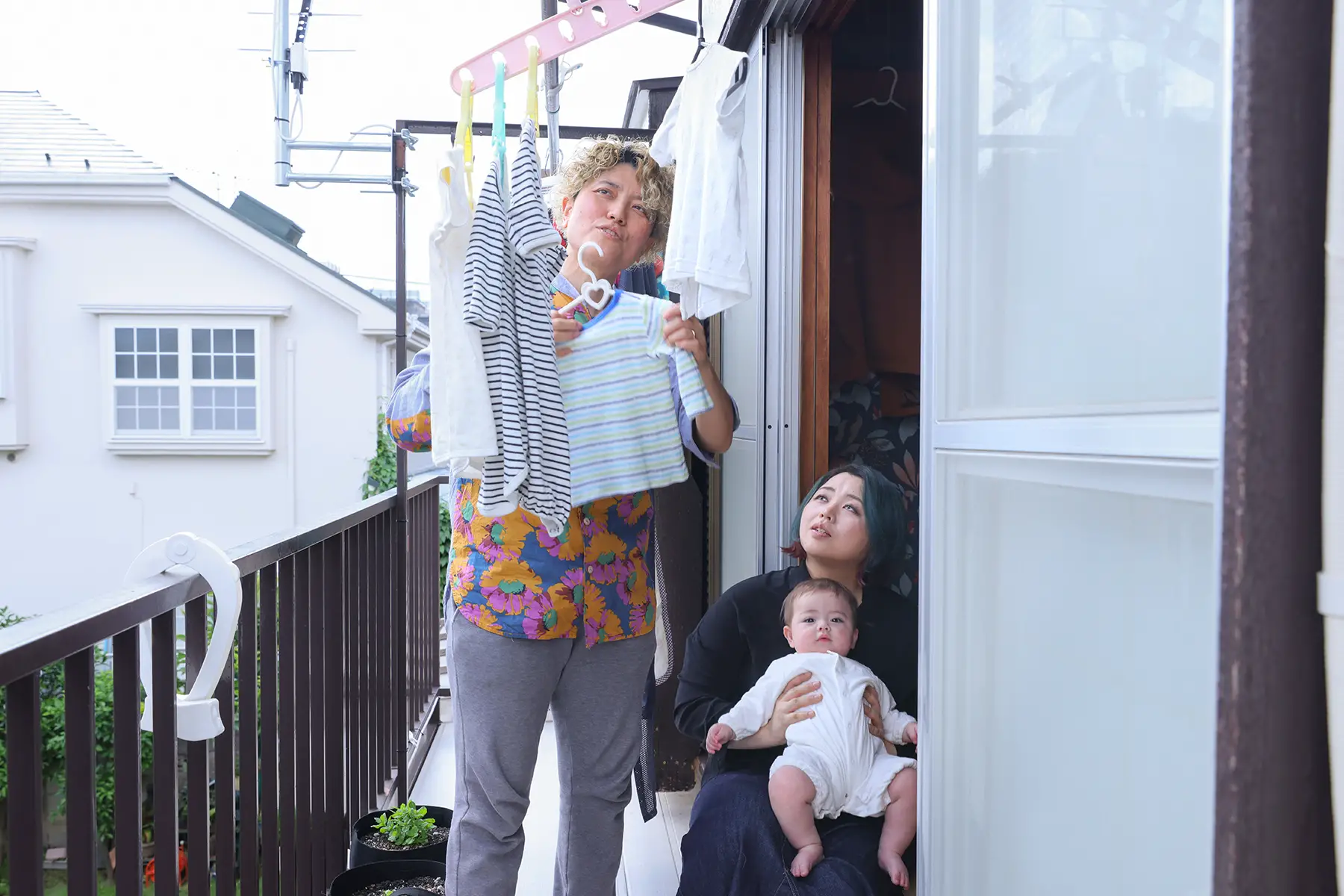
Spouses, partners, or dependent children who want to stay in Japan for longer than 90 days but shorter than 12 months should instead apply for a dependent family visa. It permits residence in Japan with the sponsor if they have a work visa, permanent residency, or citizenship. However, there will be restrictions on the applicants’ ability to work or study.
Citizens of countries with visa waiver agreements (e.g., Italy, the Netherlands, and Switzerland) can enter Japan without a visa for short visits.
Visiting family members in Japan who only have a temporary visa
Spouses or partners and children may use the dependent family visa to join a family member who resides temporarily in Japan on a work or student visa. Of course, the sponsor must provide proof of their financial ability (e.g., bank account or employment contract) to cover their dependents’ cost of living for the duration of their stay.
Joining refugees or asylum seekers in Japan on family visas
The Japan Immigration Bureau manages refugee applications, mostly accepting asylum seekers from Myanmar, Turkey, Cambodia, Sri Lanka, and Pakistan.
Even though the country accepts refugees and asylum seekers, its policies are stringent. For instance, out of 3,722 applicants in 2022, the government only approved 202 applications.
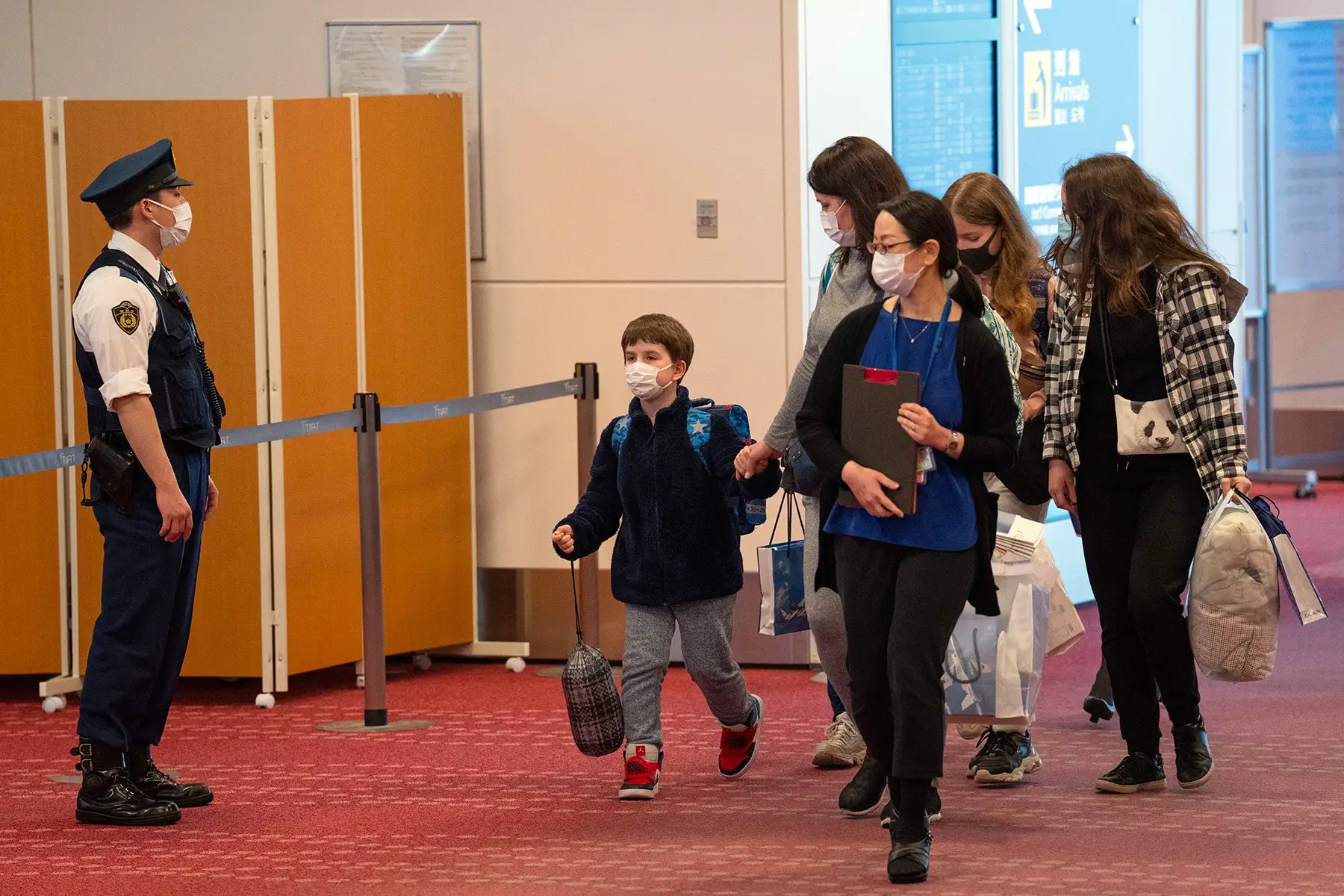
Consequently, it is even more difficult for a registered refugee’s spouse or children to join them in Japan. Nonetheless, they should use the dependent family visa to apply. Other visas may be issued, depending on the specific circumstances. As such, it would be advisable to seek specialist professional advice from a Japanese immigration lawyer to improve the success rate of the application.
When family members arrive on a family or spouse visa in Japan
Once you have joined your sponsoring family member, you must register your residency status within 14 days of moving to Japan at your local municipal office. You will be issued a residence card, which you need to carry with you at all times as proof of your immigration status.
The card will include the following:
- Full names
- Registered home address
- Visa/residency status
- Duration of stay/expiration date
What do you do following the death or divorce of a family member?
In the event of divorce or death of the sponsoring family member, visa holders should immediately contact the Immigration Services Agency of Japan (ISA). Depending on their circumstances, they may need to change their visa status or apply for a visa extension.
Complaints and appeals
In Japan, if your visa application is denied, you may submit a written objection to ISA within two months of the rejection. It’s essential to provide valid reasons and supporting documents to strengthen your case. Furthermore, consulting an immigration lawyer is advisable in preparing an effective appeal.
Useful resources
- Ministry of Foreign Affairs (MOFA – 外務省) – the government department governing foreign policy and consular services and lists Japanese embassies worldwide
- Ministry of Justice (MOJ – 法務省) – oversees work immigration policies
- Immigration Services Agency of Japan (ISA – 出入国在留管理庁) – official information about immigration and visas in Japan
- Legal Affairs Bureau (法務局) – oversees civil administration affairs, including family registers
